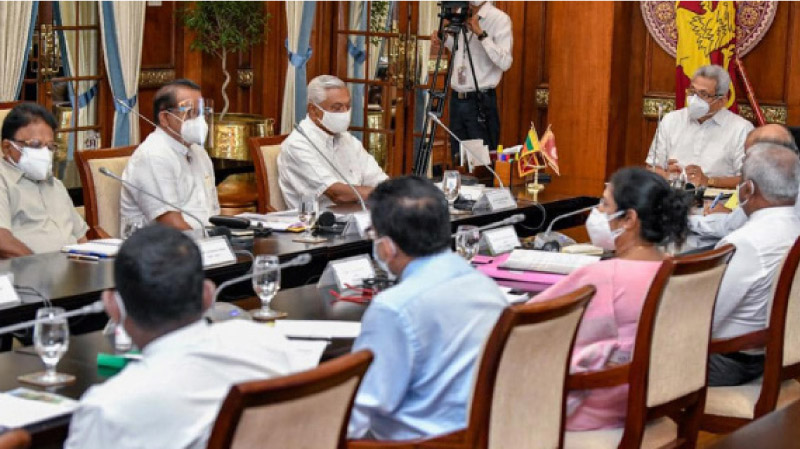Wednesday Feb 18, 2026
Wednesday Feb 18, 2026
Friday, 28 May 2021 00:37 - - {{hitsCtrl.values.hits}}

A roadmap prepared with the aim of transforming Sri Lanka’s economy into a green socio-economy with sustainable solutions to climate change was presented to President Gotabaya Rajapaksa this week.
Relevant plans were presented at a meeting held at the Presidential Secretariat with representatives of the ‘Presidential Task Force on Creating a Green Sri Lanka with Sustainable Solutions to Climate Change’.
The President instructed the relevant Ministers to prepare targeted plans to overcome the challenges in the areas of use of fertilisers, land, biodiversity, waste management, industries, renewable energy, urban and environmental education. Accordingly, the Ministries have prepared future plans following a comprehensive study.
In particular, special attention was drawn to expedite the process of increasing forest density while identifying eco-sensitive zones as well as to accelerate afforestation in identified lands.
The roadmap highlights the potential use of lands abandoned by chena farmers, chenas in protected forests, and lands with invasive vegetation for this purpose.
The Government aims to increase the forest cover in Sri Lanka to 30% by 2025. It is also mentioned in the ‘Vistas of Prosperity and Splendour’ policy statement.
The President pointed out the importance of giving priority for crops that are suitable for human consumption as well as edible to animals, such as jackfruit, breadfruit and fruits when increasing the forest cover and forest density in the country.
The Government aims to meet 80% of the country’s energy needs by renewable energy sources by 2030. It was revealed that for the first time in history, wind power plants were able to generate more power than diesel power plants.
The need to take immediate actions to further reduce the use of plastics was also discussed.
The President pointed out the importance of implementing programs based on environment and biodiversity in the fields of school education and extracurricular activities.
The attention was drawn on the importance of banning disposable plastics and polythene, and implementing programs to encourage entrepreneurs to introduce alternatives.
The President also instructed the officials to implement tree-planting projects when launching projects of the Urban Development and Road Development authorities while paying special focus on environmental beautification.
